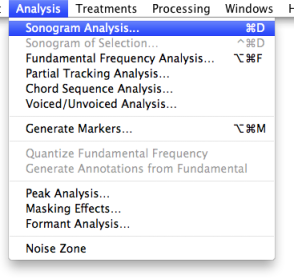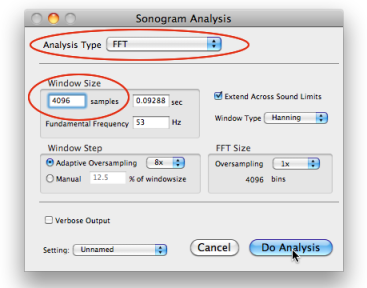- Zoom
Executing the Signal Analysis
Analysis Method : Fast Fourier Transform (FFT)
Several types of analysis can be executed to analyze the structure of a sound with AudioSculpt. We will use the Fast Fourier Transform method, which allows to represent the temporal evolution of the components – partials, or harmonics – of a signal.
Setting the Analysis Type and Parameters
Select the We only need to focus on two parameters : the analysis method, and the window size[1].
|  |

The value of the window size should usually be equal to powers of 2: (2, 4, 8, 16, 32, 64, 128, 512, 1024, 4096, 8192...) and superior to 512.
- Window Size / Window Step
- A Sonogram Analysis
- Executing the Signal Analysis
- Basic Manipulations
- Browsing the Sonogram and Studying the Spectrum
